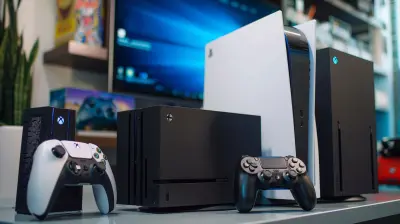The Psychology Behind Weapon Customization Choices
8 June 2025
Have you ever spent more time customizing your weapon in a game than actually using it? Don’t worry, you're not alone. There's something oddly satisfying about swapping out a barrel, picking the perfect skin, or attaching a laser sight — even if you barely notice the stat boost it brings. But here's the million-dollar question: why are we so obsessed with weapon customization in games?
It’s not just aesthetics or functionality — it runs deeper than that. It's psychology. So buckle up, because we’re diving deep into what's really going through our heads every time we tweak our digital firearms. Spoiler alert: it’s more than just making it look cool.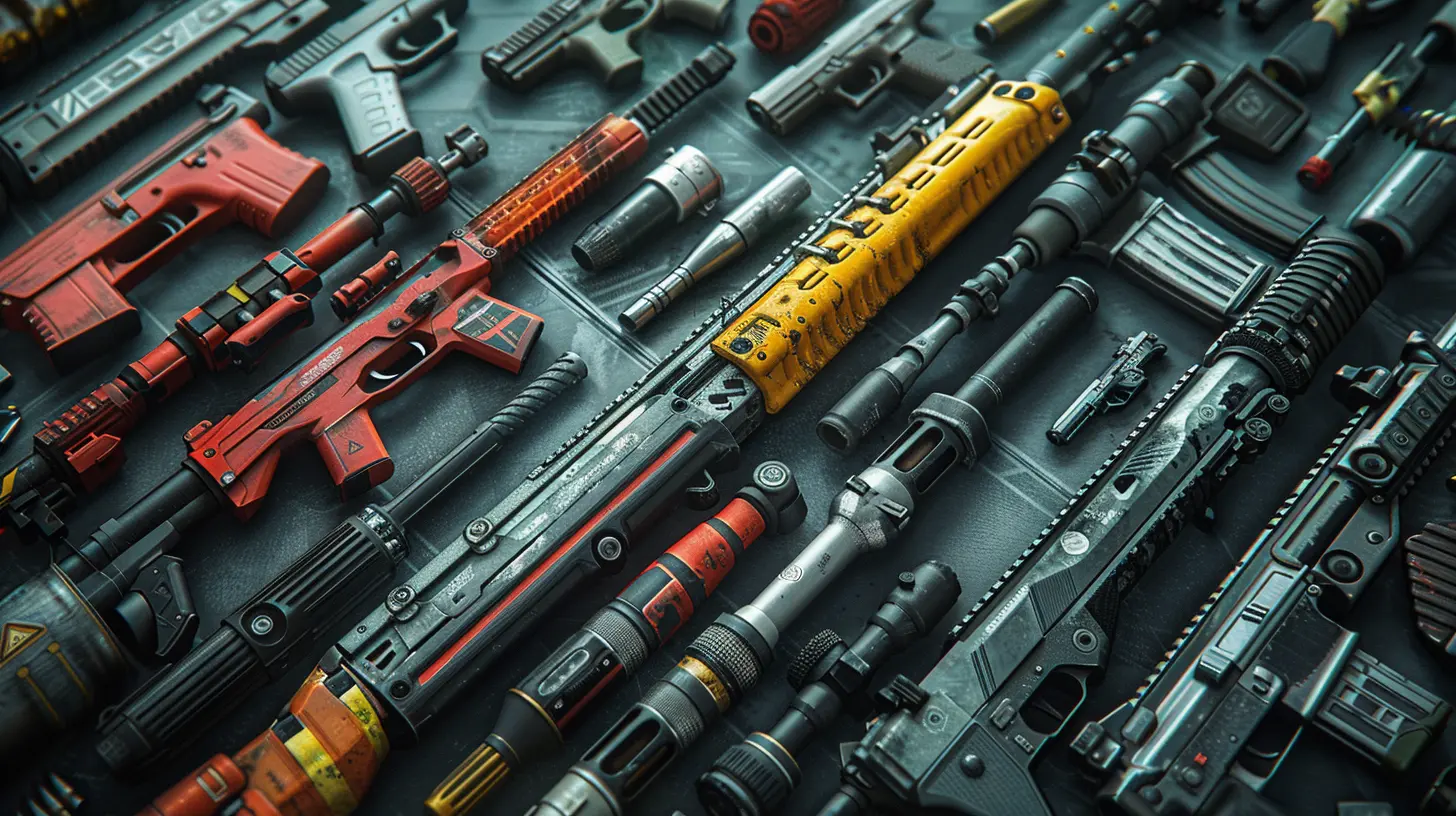
Why Weapon Customization is More Than Just a Game Mechanic
At first glance, weapon customization might seem like just another feature tossed into modern games to fill out menus. But in reality, it taps into some pretty primal parts of our brain — control, identity, mastery, and expression.Think about it: every attachment, every camo, every charm dangling off a gun isn’t just for show. It’s a reflection of you. The way you play, how you want to be seen, and what kind of authority you want to command in the game world.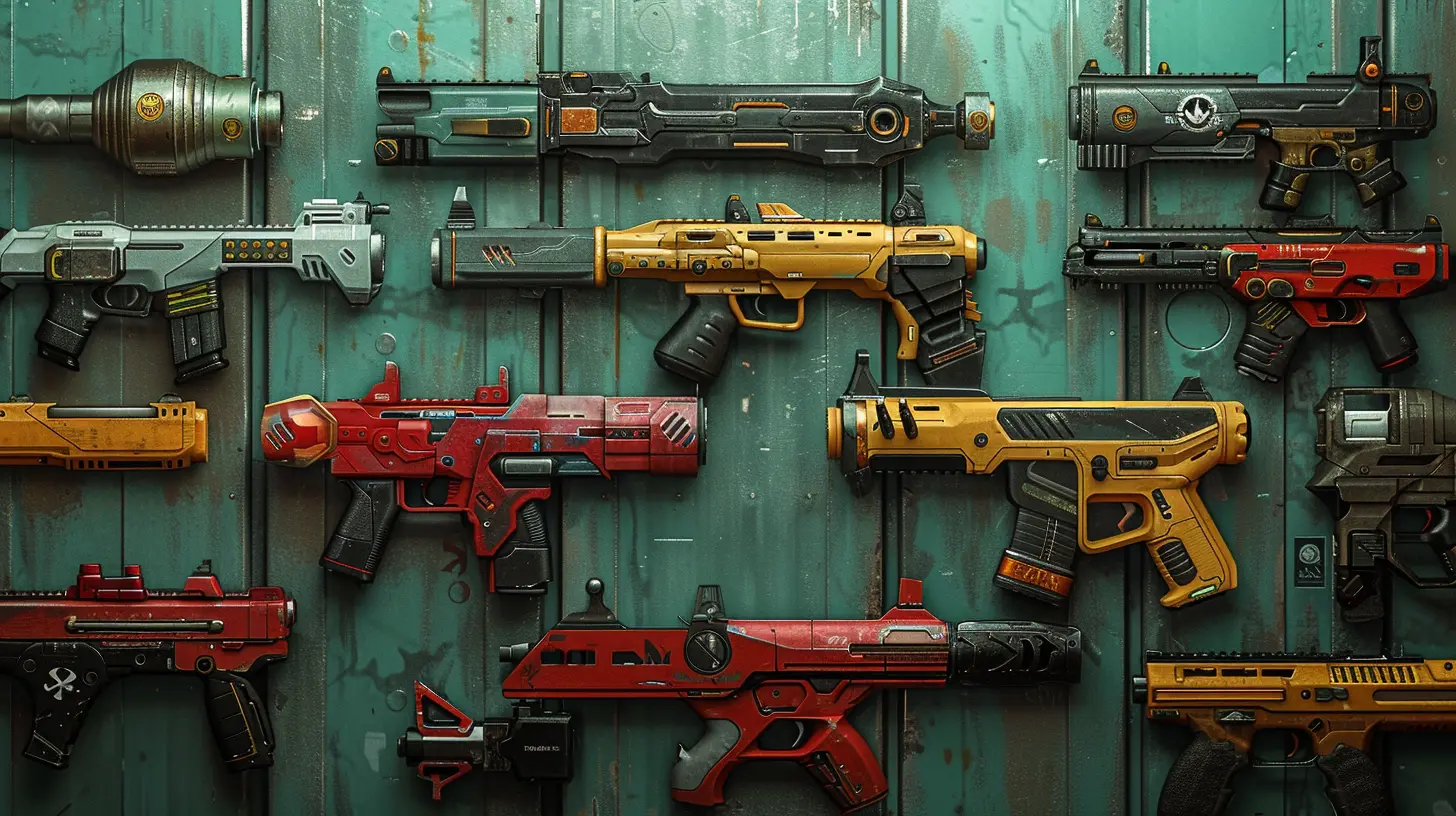
Identity: Your Loadout, Your Rules
Let's face it — everyone wants to stand out. Whether it's in real life or in a digital battleground, we all crave individuality. Weapon customization gives players a canvas to show off their personality.Some players slap on flashy skins to scream, “Look at me!” Others go dark and minimal, screaming a quiet but deadly, “I mean business.”
Just like we choose fashion styles or car colors in real life, weapon customization lets gamers showcase who they are — or who they want to be — in the virtual world.
> “Tell me what your loadout looks like, and I’ll tell you who you are.”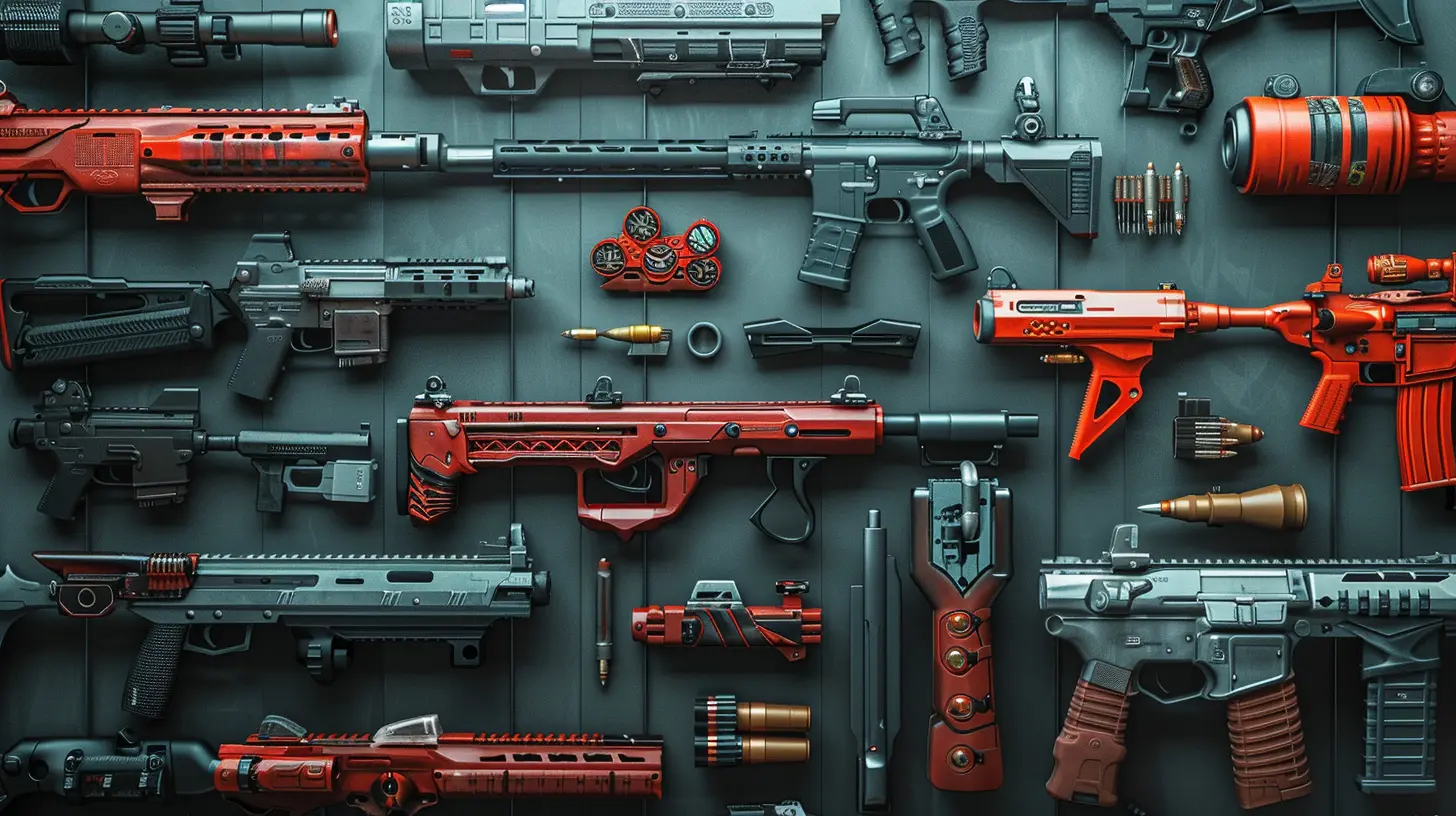
Control Freaks Welcome — Customization Satisfies the Brain
Humans love control. In a world where so much is out of our hands, games give us a sandbox where we call the shots — literally and figuratively.Weapon customization lets us fine-tune our gameplay. Want high accuracy and range? Swap that barrel. Prefer fast handling over power? Choose a lightweight stock. These aren’t just mechanical changes; they’re psychological payoffs. Each tweak makes the player feel more in control of their destiny.
It’s not just about playing the game — it’s about playing your version of it.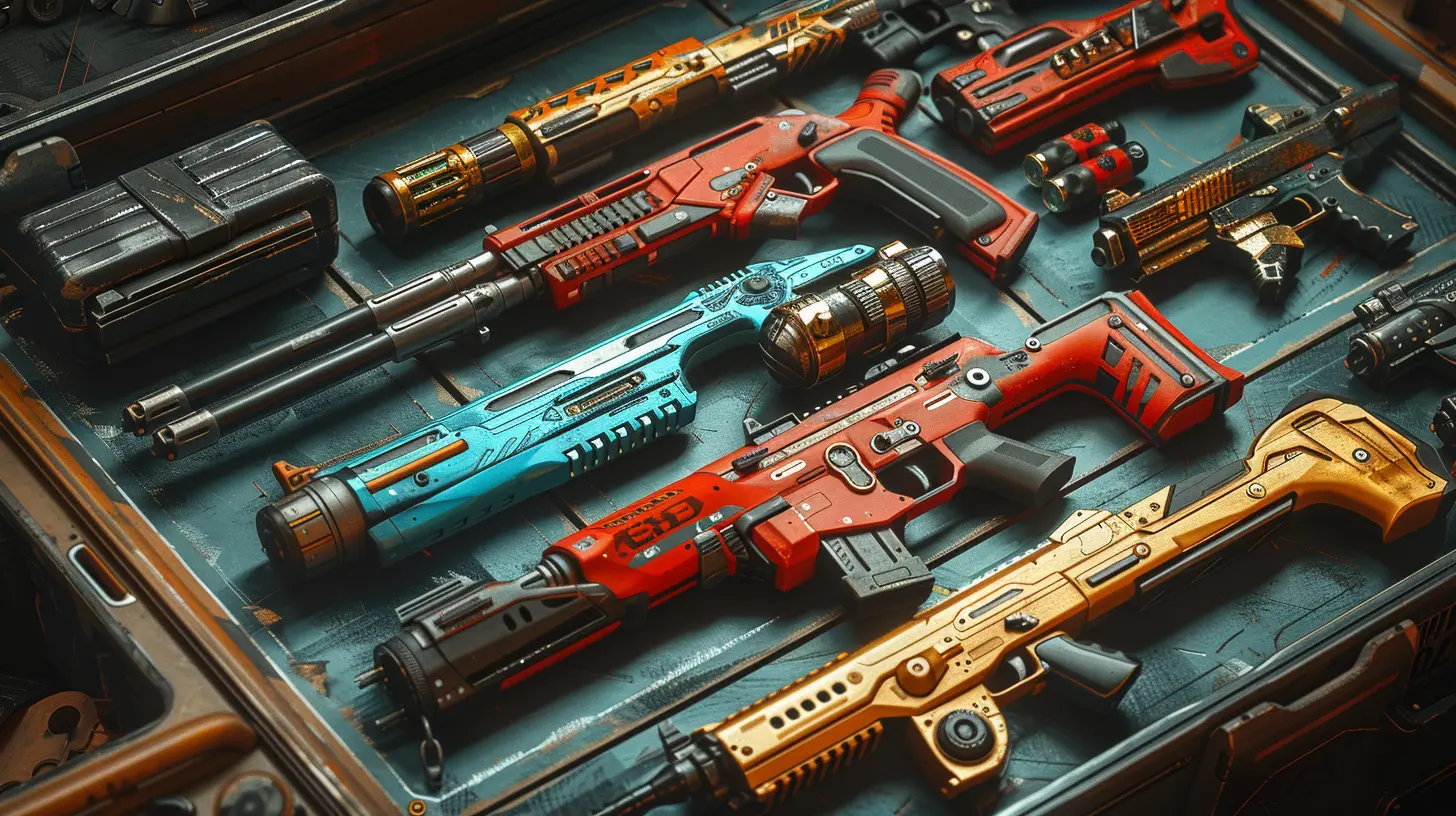
Customization Acts as Progress Feedback
You level up, you unlock a new scope — boom, instant gratification.One of the things our brains adore is feedback. When we get something in return for doing something — like unlocking a new camo after ten headshots — our brain lights up like a pinball machine.
Weapon customization systems are often tied to in-game achievements or progression. This creates a constant feedback loop: perform well, get rewarded, look cooler or shoot better. That little dopamine hit? It's what keeps you grinding for that final gold skin at 3 AM.
Cognitive Bias: "This Gun is Mine, I Made It Better"
Ever heard of the IKEA effect? It’s a psychological quirk that makes us place higher value on things we helped create. You build a wobbly chair from IKEA, and suddenly it’s your prized possession.Same goes for your favorite assault rifle in Call of Duty or your treasured sniper in Apex Legends. Once you've fine-tuned it with your preferred attachments and given it a sick skin?
It's yours.
You’ll probably think it performs better too — even if statistically, it doesn’t. That's the power of customization and ownership twisted through our cognitive biases. Our brains fool us in the best way possible.
Status Symbol: “My Gun’s Drippier Than Yours”
Gamers might pretend stats are all that matter, but let’s not kid ourselves — flexing matters too.Weapon skins, charms, and rare blueprints function like luxury watches or designer outfits. They’re status symbols. They say, “I’ve been playing longer,” or “I completed a wild challenge,” or sometimes just, “I paid 20 bucks and you didn’t.”
We’re social creatures. Even in cutthroat competitive shooters, we seek recognition. A rare weapon skin or a master-crafted loadout is like a trophy — a digital badge of honor that says you belong.
The Role of Fantasy
What’s cooler than running into battle with a neon tiger-striped shotgun that shoots fire? Nothing. Absolutely nothing.Customization fuels the fantasy part of gaming. It detaches us from the mundane and drops us into a limitless world of creativity and style. Whether you're a gritty military purist or want your gun to look like it came out of a cyberpunk fever dream, customization gives you the tools to live out your ideal game persona.
And let's be real — when your weapon looks like it's straight out of a sci-fi movie, you feel more powerful. Sometimes style is just as important as substance.
Adjusting Gameplay Preferences
Some people are aggressive run-and-gun types. Others hang back, pick off enemies with precision. Weapon customization lets players mold their tools to match their playstyle.You could be using the exact same gun as someone else, but fit it with attachments that turn it into a completely different beast.
Customization acts almost like a skill tree — it adapts a player's experience to their strengths. Instead of forcing players into cookie-cutter roles, games hand them the sculpting tools and go, "Make this work for you."
Isn’t that way more empowering?
Social Influence and Trends
Let’s not ignore the fact that trends run wild in the gaming world. You see a streamer dominate with a crazy-looking modded gun and boom — everyone wants that setup.Weapon customization choices aren’t always purely independent decisions. We’re influenced by our peers, the meta, and content creators. This is straight-up social psychology 101.
Sometimes, players rock certain loadouts not just because they're effective — but because everyone else is doing it. And in competitive multiplayer worlds, no one wants to be left behind.
Rituals and Superstition in Customization
Here’s one that might sound off-the-wall — gamers can get superstitious.Ever switch to a certain camo before a ranked match because you swear it brings luck? Or refuse to change a specific loadout because it "just feels right"?
These are rituals. Psychological anchors. They give us illusionary confidence, and sometimes that’s enough to change how we perform.
Weapon customization can take on a spiritual, routine-like role. It's not just about optimization — it's about mindset.
Customization as a Hobby Within the Game
For some people, playing the game is fun. For others? Tinkering with their loadout is the real endgame.Everything from recoil stats to aesthetic color palettes becomes a mini side hobby. It’s like building a car in a garage — test parts, make tweaks, try out new builds in the wild. Rinse and repeat.
Games like Escape From Tarkov, Destiny 2, or Modern Warfare 2 offer deep, complex weapon modding systems that turn customization into an obsession. It can become as engrossing as the game itself — a hobby within a hobby.
Skinner Box Mechanics: Reward Customization Loops
Let’s get real nerdy for a second: video games use what psychologists call Skinner box mechanics — behavior loops built on actions and rewards.Kill enemies, get XP. Earn XP, unlock parts. Use parts, make better guns. Use better guns, kill more enemies. Loop that bad boy forever.
Weapon customization thrives within this system. The constant drip-feed of new materials, blueprints, and cosmetics ensures that there’s always one more thing to grab. And we keep coming back because our brains are wired to love that kind of reward cycle.
Real-Life Parallels: Military and Gun Culture
Let’s not ignore the fact that many FPS games are modeled after real-world military simulations. And in the real world? Customizing firearms is a big deal.From paint jobs to suppressors, real-life operators personalize their weapons for specific roles. Games mirror this perfectly, bringing a touch of realism and authenticity to virtual arsenals.
Gamers interested in military culture, firearms, or tactical simulations are drawn to customization — not just for aesthetics, but for realism. It bridges the gap between fantasy and authenticity.
The Future of Weapon Customization
As games evolve, weapon customization is going next-level. We're talking dynamic skins that react to your kills, real-time part changes mid-mission, and even player-created weapon mods.AI-generated customization or marketplace trading systems could turn every player’s weapon into a unique digital collectible.
The passion behind customization isn’t going away — it’s getting smarter, deeper, and more personal. And honestly? We’re here for it.
Final Thoughts: It’s Deeper Than the Barrel
Weapon customization isn't just some cosmetic cherry on top. It's a complex, multi-layered psychological mechanic that taps into identity, control, status, and fantasy.Every scope you pick or camo you rock says something about who you are as a player.
So the next time someone asks why you spent 30 minutes customizing your rifle instead of actually playing the game, just tell them: "I’m not just building a weapon — I’m building me.
all images in this post were generated using AI tools
Category:
Weapon CustomizationAuthor:

Aurora Sharpe
Discussion
rate this article
3 comments
Darrow Thornton
Great insights on how weapon customization reflects player identity and strategy! Looking forward to more articles like this.
June 17, 2025 at 3:03 PM

Aurora Sharpe
Thank you! I'm glad you enjoyed it. Stay tuned for more insights on player psychology and customization!
Mason Lewis
Great insights! Understanding the psychological factors influencing weapon customization choices adds depth to gaming. It's fascinating how personalization enhances player engagement and experience. Thank you!
June 10, 2025 at 3:32 AM

Aurora Sharpe
Thank you for your thoughtful comment! I'm glad you found the insights into the psychological aspects of weapon customization engaging. Personalization truly does enrich the gaming experience!
Kenneth Morris
This article insightfully explores how weapon customization taps into players' psychological needs for identity and control. By aligning personal preferences with gameplay mechanics, developers enhance immersion and satisfaction. However, it’s crucial to consider the potential for overemphasis on customization leading to imbalance in gameplay. A well-rounded discussion on this topic!
June 9, 2025 at 4:35 AM

Aurora Sharpe
Thank you for your insightful comment! I appreciate your perspective on the balance between customization and gameplay. It's a critical aspect worth exploring further.
